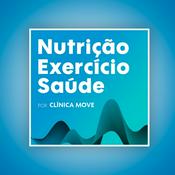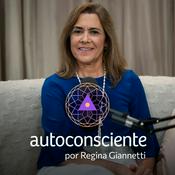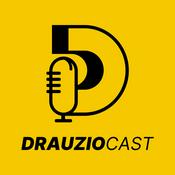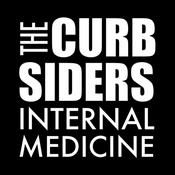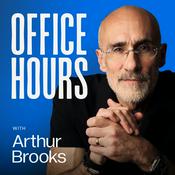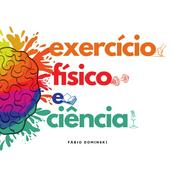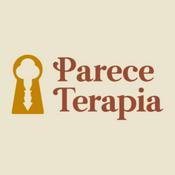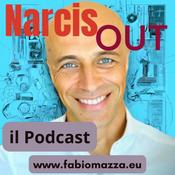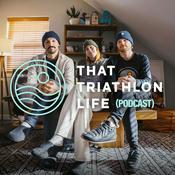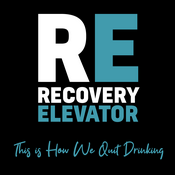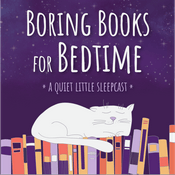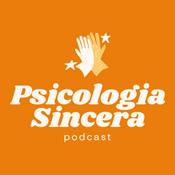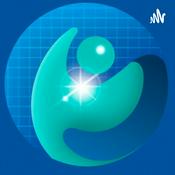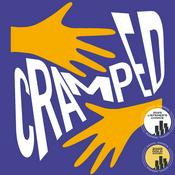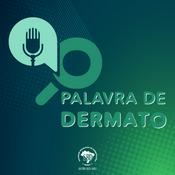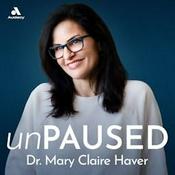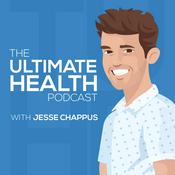Live Well Be Well with Sarah Ann Macklin | Health, Lifestyle, Nutrition
Sarah Ann Macklin
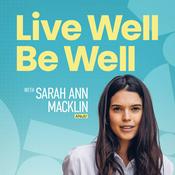
Último episódio
387 episódios
The Nutrition Advice Making You Less Healthy: Four Signs To Watch | Nutritionist Sarah Ann Macklin
18/2/2026 | 40minDo you ever find yourself standing in front of the fridge at 6 PM just staring into the light? It is that heavy feeling of being completely "done" for the day. It is not just physical fatigue. It is your brain telling you it has nothing left to give. I have been there so many times and I want you to know that it is not a failure of willpower.
This week is a little different because it is just you and me. I wanted to sit down and have a real heart to heart about why staying healthy feels so incredibly hard right now. We are living in such a loud and polarizing world when it comes to nutrition and honestly it is exhausting. I am sharing the concept of the Brain Bank Account which has been a total game changer for how I manage my own energy. We are moving away from the "shoulds" and looking at how to build gentle systems that actually hold you up when life gets messy.
Here’s what we dive into:
- Why the world of nutrition feels so loud and confusing and how to find your own quiet center again.
- How to use the Brain Bank Account method to stop overdrawing your internal energy.
- What happens to our brains when we hit that 3 PM slump and how to nourish our way through it.
- Why making decisions about food is actually one of the most taxing things we do every day.
- How to align your natural biological rhythms with your busy social life without the stress.
- What the Great British Veg Out is all about and why adding more is always better than taking away.
- Why your health is individual and how to stop comparing your "off days" to someone else's highlight reel.
Love,
Sarah Ann 💛
***
This episode is sponsored by:
NOWATCH: The compassionate health tracker
Connecting body and mind with unique stress recovery insights so you can live fully today
15% off with code LWBW15 at https://nowatch.com/
Mojo: the app for expert-led courses in better sex.
Learn from world-class sex therapists and relationship experts with courses tailored to your needs.
15% off with code LiveWell15 at mymojo.com/livewellbewell
👉 If this resonates, you can join the thousands who read
The Compassionate Cure each week. https://sarahmacklin.substack.com/
***
The Great British Veg Out
How to support your gut, energy, and hormones by eating more — not less.
👉 https://sarahmacklin.substack.com/p/the-great-british-veg-out
Reset Your Health
If your body feels off after stress, travel, or burnout — this is where to start.
👉 https://sarahmacklin.substack.com/s/reset-your-health-in-30-days
***
Let’s be friends!
📷 Instagram: https://www.instagram.com/sarahannmacklin/
📹 Subscribe:http://www.youtube.com/@livewellbewellsarah
🐦 Twitter: https://x.com/SarahAnnMacklin
📱 TikTok: https://www.tiktok.com/@livewellbewellpodcast
💌 Newsletter: https://sarahmacklin.substack.com/
***
If You Enjoyed This Episode, You Might Also Like:Your Brain on Food, Sleep & Stress: What Top Experts Want You to Know | Brain Health Masterclasshttps://youtu.be/1WhdVRiaHqA
Anxiety Explained: Top Neuroscientist Says It’s a Predictive Error | Dr. Lisa Feldman Barretthttps://youtu.be/Es2i3oLj6Nw
***
Sign up to Sarah’s Compassionate Cure newsletter:
Science Simplified, Health Humanised.
Join thousands in exploring actionable insights that prioritise compassion, clarity, and real-life impact.
https://sarahmacklin.substack.com/
***
Highlights
Intro (00:00)
The Complexity of Nutrition (00:59)
Listening to Your Body's Signals (01:53)
Personal Anecdotes and Practical Tips (04:34)
Understanding Energy and Body Budget (09:11)
Impact of Stress on Eating Habits (17:15)
Sensory Awareness and Eating Habits (21:01)
The Importance of Self-Talk and Building Systems (29:47)
Final reflections: Learning to listen to your own system (36:53)
***
Love what you’re hearing?
My small ask is to please rate and review Live Well Be Well. This helps the show expand and allows me to keep producing these with the best quality guests. It means a huge amount to me, so thank you.Alain De Botton: How Do You Heal a Broken Heart? The Importance of Closure & Self-Compassion
16/2/2026 | 6minHow long does heartbreak really last and what actually helps you heal? This clip explores heartbreak as a trauma that can take years, the call for real closure, and how unexplained breakups shatter trust and sense of self. I’m exploring with my guest the quieter, tragic view that not all pain becomes growth, even while we may learn boundaries and ask sharper questions. Here, I’m discussing the slow turn toward self-compassion, moving from siding with the rejector to being on your own side, and what recovery realistically looks like.
Watch the FULL podcast here: https://youtu.be/eTbA81qNYt4
***This episode is sponsored by:
NOWATCH: The compassionate health tracker
Connecting body and mind with unique stress recovery insights so you can live fully today15% off with code LWBW15 at https://nowatch.com/
Mojo: the app for expert-led courses in better sex.Learn from world-class sex therapists and relationship experts with courses tailored to your needs.15% off with code LiveWell15 at mymojo.com/livewellbewell
***
The Great British Veg OutHow to support your gut, energy, and hormones by eating more — not less.
👉 https://sarahmacklin.substack.com/p/the-great-british-veg-outReset Your HealthIf your body feels off after stress, travel, or burnout — this is where to start.
👉 https://sarahmacklin.substack.com/s/reset-your-health-in-30-days👉 Practical beats perfect.Here’s a free 5-recipe PDF I use to support energy and stress during busy weeks.https://sarahannmacklin.com/5_free_recipes👉 If this resonates, you can join the thousands who readThe Compassionate Cure each week.https://sarahmacklin.substack.com/
***
Let’s be friends!
📷 Instagram: https://www.instagram.com/sarahannmacklin/📹 Subscribe: http://www.youtube.com/@livewellbewellsarah
🐦 Twitter: https://x.com/SarahAnnMacklin
📱 TikTok: https://www.tiktok.com/@livewellbewellpodcast💌 Newsletter: https://sarahmacklin.substack.com/- FULL podcast here: https://youtu.be/tNoDNnpSkdA
Do you feel like two different people across your cycle? Understanding the brain effects of estrogen and progesterone can help you trust both advisors within you. This clip explores the often overlooked luteal phase, why progesterone matters for mood, sleep, and decision making, and how it's used after concussion to protect the brain. We also touch on perimenopause care and why progesterone isn't just for the uterus, plus emerging questions about neuroprotection and Alzheimer's. Watch the
***
This episode is sponsored by:NOWATCH: The compassionate health trackerConnecting body and mind with unique stress recovery insights so you can live fully today15% off with code LWBW15 at https://nowatch.com/
Mojo: the app for expert-led courses in better sex.Learn from world-class sex therapists and relationship experts with courses tailored to your needs.15% off with code LiveWell15 at mymojo.com/livewellbewell
***
The Great British Veg OutHow to support your gut, energy, and hormones by eating more — not less.
👉 https://sarahmacklin.substack.com/p/the-great-british-veg-outReset Your HealthIf your body feels off after stress, travel, or burnout — this is where to start.
👉 https://sarahmacklin.substack.com/s/reset-your-health-in-30-days
👉 Practical beats perfect.Here’s a free 5-recipe PDF I use to support energy and stress during busy weeks.https://sarahannmacklin.com/5_free_recipes
👉 If this resonates, you can join the thousands who readThe Compassionate Cure each week.https://sarahmacklin.substack.com/
***
Let’s be friends!
📷 Instagram: https://www.instagram.com/sarahannmacklin/📹 Subscribe: http://www.youtube.com/@livewellbewellsarah
🐦 Twitter: https://x.com/SarahAnnMacklin
📱 TikTok: https://www.tiktok.com/@livewellbewellpodcast💌 Newsletter: https://sarahmacklin.substack.com/ Why You Still Can’t Orgasm (The Step-By-Step Guide) | Dr. Laurie Mintz, Sex Therapist
11/2/2026 | 1h 19minWhy is it that we often feel like we need to solve the mystery of our own bodies in total silence? For so many of us, the path to pleasure has been paved with confusion or even shame, leaving us feeling like there is something broken within us when there truly isn't.
This week on Live Well Be Well, I am sitting down with the pioneering Dr. Laurie Mintz. Laurie is a psychologist and author who is on a mission to close the orgasm gap and help us reclaim our right to feel alive and connected in our most intimate moments.In this conversation, we dismantle the cultural lies that have taught us to prioritize everyone's pleasure except our own.
Here’s what we explore together:
- What the clitoris actually is and why it has been linguistically and scientifically erased for centuries.
- How the myth of the penetrative orgasm is keeping women from experiencing true fulfillment.
- Why your brain is your most powerful sexual organ and how to stop overthinking in the bedroom.
- How to bridge the orgasm gap by moving away from patriarchal scripts and toward pleasure equality.
- Why masturbation is a vital first step in understanding your own unique biological language.
- What it means to be truly in your body and how play can transform your adult health.
- How to navigate the honest and awkward conversations that lead to the most meaningful connections of your life.
- Why information is the ultimate power in reclaiming your body and your joy.
Love,
Sarah Ann 💛
***
This episode is sponsored by:
NOWATCH: The compassionate health trackerConnecting body and mind with unique stress recovery insights so you can live fully today15% off with code LWBW15 at https://nowatch.com/
Mojo: the app for expert-led courses in better sex.Learn from world-class sex therapists and relationship experts with courses tailored to your needs.15% off with code LiveWell15 at mymojo.com/livewellbewell
***
The Great British Veg OutHow to support your gut, energy, and hormones by eating more — not less.
👉 https://sarahmacklin.substack.com/p/the-great-british-veg-outReset Your HealthIf your body feels off after stress, travel, or burnout — this is where to start.
👉 https://sarahmacklin.substack.com/s/reset-your-health-in-30-days👉 Practical beats perfect.Here’s a free 5-recipe PDF I use to support energy and stress during busy weeks.https://open.substack.com/pub/sarahmacklin/p/download-your-free-5-recipes-to-relieve
👉 If this resonates, you can join the thousands who readThe Compassionate Cure each week. https://sarahmacklin.substack.com/
***
Let’s be friends!
📷 Instagram: https://www.instagram.com/sarahannmacklin/📹 Subscribe:http://www.youtube.com/@livewellbewellsarah🐦 Twitter: https://x.com/SarahAnnMacklin
***
If You Enjoyed This Episode, You Might Also Like:
Women's Brain Health: What Science REALLY Says About Hormones, PMS & Menopause | Dr Sarah McKayhttps://youtu.be/aKnS1McNVm8
***
Sign up to Sarah’s Compassionate Cure newsletter:Science Simplified, Health Humanised.Join thousands in exploring actionable insights that prioritise compassion, clarity, and real-life impact.https://sarahmacklin.substack.com/
***
Highlights
00:00 Debunking Myths About Female Orgasm
01:49 The Orgasm Gap: A Cultural Issue
06:43 Understanding the Clitoris
21:44 The Importance of Masturbation
38:23 The Importance of Communication in Relationships
39:38 Key Skills for Effective Communication
41:36 Applying Communication Skills to Sexual Relationships
42:48 Addressing Common Sexual Misconceptions
43:51 The Role of Therapy in Enhancing Communication
45:42 Empowerment Through Sexual Honesty
49:02 The Impact of Socialization on Sexual Communication
01:02:59 Mindfulness and Sexual Pleasure
01:12:24 The Connection Between Mind and Body
***
Love what you’re hearing?My small ask is to please rate and review Live Well Be Well. This helps the show expand and allows me to keep producing these with the best quality guests. It means a huge amount to me, so thank you.- Watch the FULL podcast here: https://youtu.be/qHFymGgsYyECan you do everything right and still face Alzheimer’s risk? It can happen, and we discuss how environmental toxins, metabolic health, and shifting hormones may play a role. This clip explores two grandmothers with opposite lifestyles, highlighting possible factors like hemoglobin A1c, menopause-related drops in estrogen, and other hormones including IGF-1 and thyroid. We also consider genetic resilience and detox capacity, and why relying on luck isn’t wise. Women are addressed directly, with advice to see a good hormone doctor during perimenopause and menopause. ***This episode is sponsored by:NOWATCH: The compassionate health trackerConnecting body and mind with unique stress recovery insights so you can live fully today15% off with code LWBW15 at https://nowatch.com/Mojo: the app for expert-led courses in better sex.Learn from world-class sex therapists and relationship experts with courses tailored to your needs.15% off with code LiveWell15 at mymojo.com/livewellbewell***The Great British Veg OutHow to support your gut, energy, and hormones by eating more — not less.👉 https://sarahmacklin.substack.com/p/the-great-british-veg-outReset Your HealthIf your body feels off after stress, travel, or burnout — this is where to start.👉 https://sarahmacklin.substack.com/s/reset-your-health-in-30-days
👉 Practical beats perfect.Here’s a free 5-recipe PDF I use to support energy and stress during busy weeks.https://sarahannmacklin.com/5_free_recipes👉 If this resonates, you can join the thousands who readThe Compassionate Cure each week.https://sarahmacklin.substack.com/***Let’s be friends!📷 Instagram: https://www.instagram.com/sarahannmacklin/📹 Subscribe: http://www.youtube.com/@livewellbewellsarah🐦 Twitter: https://x.com/SarahAnnMacklin📱 TikTok: https://www.tiktok.com/@livewellbewellpodcast💌 Newsletter: https://sarahmacklin.substack.com/
Mais podcasts de Saúde e fitness
Podcasts em tendência em Saúde e fitness
Sobre Live Well Be Well with Sarah Ann Macklin | Health, Lifestyle, Nutrition
Health shouldn’t feel this hard.
I’ve lived it, studied it, and now I’m here to help make it make sense.
A smarter, more human way to live well.
Subscribe now, and start living well, for real.
Instagram: @sarahannmacklin
Newsletter: https://substack.com/@sarahannmacklin
Website: sarahannmacklin.com
#LiveWellBeWell
Site de podcastOuça Live Well Be Well with Sarah Ann Macklin | Health, Lifestyle, Nutrition, Psicologia na Prática e muitos outros podcasts de todo o mundo com o aplicativo o radio.net

Obtenha o aplicativo gratuito radio.net
- Guardar rádios e podcasts favoritos
- Transmissão via Wi-Fi ou Bluetooth
- Carplay & Android Audo compatìvel
- E ainda mais funções
Obtenha o aplicativo gratuito radio.net
- Guardar rádios e podcasts favoritos
- Transmissão via Wi-Fi ou Bluetooth
- Carplay & Android Audo compatìvel
- E ainda mais funções


Live Well Be Well with Sarah Ann Macklin | Health, Lifestyle, Nutrition
Leia o código,
baixe o aplicativo,
ouça.
baixe o aplicativo,
ouça.


